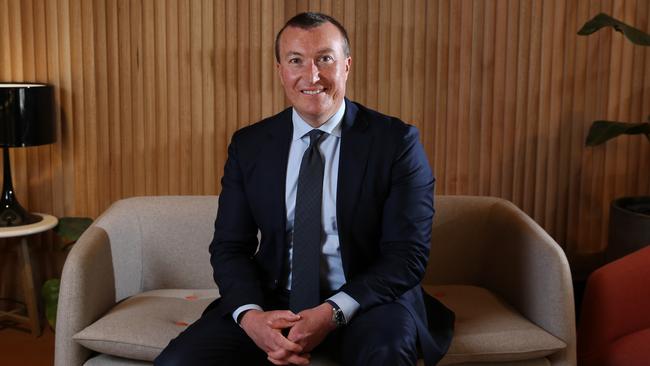Accommodation crisis: BCA’s push to ‘turbocharge’ planning approvals
The Business Council of Australia is calling for state governments to be granted the power to strip low-performing councils of their role in making building applications decisions.

The Business Council of Australia is calling for state governments to be granted the power to strip low-performing councils of their role in making building applications decisions, under a proposed overhaul of planning approval processes to increase the nation’s housing supply.
Under the proposed reforms to “turbocharge” housing approvals, decisions on significant projects would also be elevated to state governments and a new mechanism introduced to allow builders to compel authorities to make a determination on stalled planning applications.
Amid mounting political pressure to reform negative gearing and capital gains tax concessions to address the housing crisis, after Jim Chalmers admitted to asking Treasury officials to look at scaling back the tax breaks, the pitch to shake up approval processes points to an alternative pathway for the government.
As Labor’s signature shared equity scheme remains blocked in the Senate, the BCA has warned that an additional 64,000 properties a year would need to be built to meet the government’s ambitious housing target of 1.2 million new homes.
BCA chief executive Bran Black said accelerating building approvals was key to increasing the supply of housing, which would help curb inflation by putting a handbrake on spiralling rents and property values.
“We have a housing supply crisis in Australia and we need to turbocharge the assessment and approval process so we get more homes built faster,” Mr Black said.
“This supply crisis, driven by a shortfall, means demand for limited houses further pushes up prices and rents, driving higher inflation, which hurts all Australians.
“Plain and simple, we need more supply, and we want to work with local and state governments to speed up their housing decisions, so builders can get on with the job of delivering places for people to live.”
The BCA has also proposed introducing report card-style tracking of local councils’ performance on application processing and the establishment of a single “concierge service” to speed up decision-making across government, rather than multiple agencies being involved.
It also advocated for a shift in approach on community consultation processes that addressed legitimate concerns and struck the right balance between local concerns and the need for development.
Mr Black said there was a significant difference between the performance of different councils, arguing that providing transparency around local government decision-making would bolster approvals.
“I hear from members that some councils are highly professional, while others are unresponsive and can take months to make a decision, in some cases running down the clock because they can,” he said.
The proposed reforms will form one of many recommendations in a landmark report on the housing crisis to be released later this month, with Mr Black arguing for greater state government intervention in building approvals as the best path forward.
“State governments are best able to balance local feedback with the broader economic and policy priorities faced by the community around the need for housing,” he said.
Housing policy has become a key political issue for Labor after its Help to Buy scheme became stalled in the Senate when the Coalition and the Greens voted to postpone debate until November.
The Greens have withheld their support for the shared equity scheme, arguing it would only help a fraction of prospective first-home buyers, and instead demanding negative gearing reform and a rent freeze.
About 176,000 new homes were built across the nation in 2023-24, a shortfall of 64,000 dwellings needed to meet housing targets.
While it’s estimated nine properties need to be built for every 1000 people a year, the country is currently only completing six.
The ACT had the highest overall property approval rate with 9.6 dwellings approved per 1000 people in the year to July, and Victoria performing best of the larger states with 7.5 homes approved per 1000 people. The Northern Territory had the lowest approval rates with only 1.4 properties per 1000 residents, according to the Australian Bureau of Statistics.




To join the conversation, please log in. Don't have an account? Register
Join the conversation, you are commenting as Logout